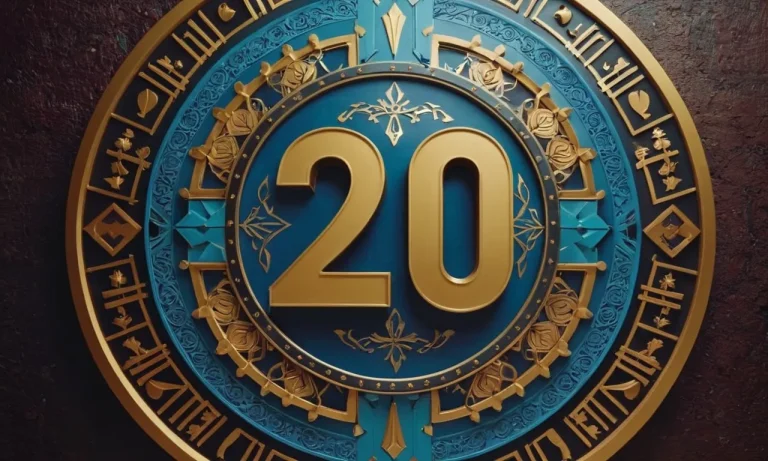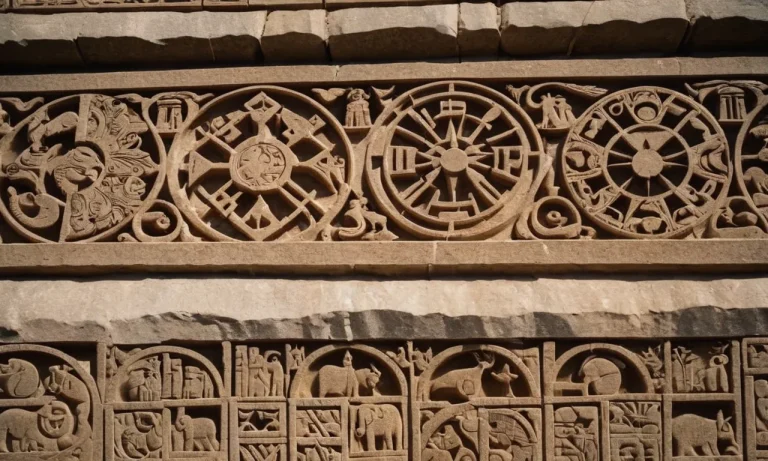Does The Hit Show Manifest Promote Christian Values? Analyzing The Series’ Religious Undertones
Ever since it first aired in 2018, the sci-fi drama Manifest has drawn viewers in with its mystery-laden premise. But some fans have wondered if the show also aims to promote Christian values. If you’re short on time, here’s a quick answer to your question: While Manifest incorporates some broad Judeo-Christian themes, it does not explicitly endorse specific religious beliefs.
In this in-depth article, we’ll explore Manifest’s storyline and characters, analyze its use of biblical allusions and symbolism, and evaluate statements from the cast and creators about the show’s religious orientation.
By examining these key factors, we can gain insight into whether Manifest has an underlying Christian message.
Overview of Manifest’s Plot and Main Characters
The hit show Manifest has captivated audiences with its intriguing plot and complex characters. The series revolves around the passengers of Flight 828, which mysteriously disappeared for five and a half years, only to reappear without any explanation.
As the passengers try to reintegrate into society, they are faced with a series of supernatural events and inexplicable occurrences.
Premise centers on passengers of mysterious Flight 828
The premise of Manifest centers around the passengers of Flight 828, who find themselves in a world that has moved on without them. The show explores the emotional and psychological impact of being separated from loved ones for such a long period of time.
It delves into the challenges faced by the passengers as they try to rebuild their lives and make sense of the time they lost.
Explores themes of death, rebirth, miracles, and destiny
Manifest delves into various themes that have religious undertones, such as death, rebirth, miracles, and destiny. The show raises questions about the nature of life and the existence of a higher power.
It explores the idea of fate and how the passengers of Flight 828 are connected by a greater purpose.
The series also highlights the power of belief and faith in the face of uncertainty. It portrays characters who grapple with their own beliefs and are forced to confront their doubts and fears. The supernatural events in the show challenge the characters to question their understanding of the world and their place in it.
Protagonists display some Christian virtues but are flawed
The main characters of Manifest, such as Michaela Stone and Ben Stone, exhibit certain Christian virtues, including compassion, forgiveness, and selflessness. They strive to do what is right and help others, even in the face of adversity.
However, it is important to note that the characters are also flawed and face their own personal struggles. They are not portrayed as perfect individuals, but rather as complex and imperfect beings. This adds depth to their portrayal and makes them relatable to the audience.
Analysis of Judeo-Christian Imagery and Messaging
Flight 828’s disappearance linked to Bible verses
One of the most intriguing aspects of the hit show Manifest is its connection to religious themes, particularly Judeo-Christian imagery. Throughout the series, viewers are presented with several instances where Flight 828’s mysterious disappearance is linked to Bible verses.
This connection adds an element of intrigue and mystery to the show, as it raises questions about the significance of these verses in relation to the passengers’ experiences.
For example, in one episode, a character discovers a Bible passage that eerily aligns with the events on the plane. This discovery leads the characters to believe that there may be a greater plan at work, and that their experiences are part of a divine intervention.
This biblical connection adds depth and complexity to the storyline, enticing viewers to delve deeper into the show’s religious undertones.
Show invokes concepts like faith, redemption, evil
Manifest goes beyond simply referencing Bible verses and delves into the exploration of faith, redemption, and the battle between good and evil. These concepts are universal and resonate with audiences from various religious backgrounds.
The show presents characters grappling with their beliefs and questioning the meaning behind their experiences, creating a thought-provoking narrative that encourages viewers to reflect on their own faith journeys.
Furthermore, the series introduces moral dilemmas and ethical choices that challenge the characters’ values and beliefs. This exploration of right versus wrong adds depth and complexity to the storytelling, making it more relatable and engaging for a wide range of viewers.
But lacks overt references to Jesus Christ or church
While Manifest incorporates religious undertones and symbolism, it notably lacks overt references to Jesus Christ or the church. The show takes a more inclusive approach, focusing on universal themes rather than specific religious doctrines.
This decision allows the series to appeal to a broader audience, regardless of their religious affiliations.
By avoiding direct references to Jesus Christ or the church, Manifest maintains a balance between its spiritual elements and its mainstream appeal. This approach enables viewers to interpret the religious undertones through their own perspectives and beliefs, fostering a sense of inclusivity and open-mindedness.
It is worth noting that the absence of explicit religious references does not diminish the show’s exploration of faith and spirituality. On the contrary, it allows for a more nuanced discussion, inviting viewers to reflect on their own beliefs and engage in a deeper exploration of the show’s religious themes.
Perspectives from the Show’s Cast and Creators
Producers say show is open to interpretation
The creators and producers of the hit show Manifest have emphasized that the series is open to interpretation when it comes to religious undertones. They understand that viewers come from diverse backgrounds and belief systems, so they intentionally designed the show to be accessible to people of all faiths and spiritual perspectives.
The show’s executive producer, Jeff Rake, has stated in interviews that while Manifest does touch on themes of spirituality and faith, it does not align itself with any specific religion. Instead, the show aims to explore universal themes of hope, redemption, and the power of human connection.
Rake encourages viewers to bring their own interpretations and beliefs to the table when watching the show. He believes that the open-ended nature of Manifest allows for a variety of personal connections and spiritual interpretations, making it a show that can resonate with people of different religious backgrounds.
Actors weigh in on spiritual undertones
The cast of Manifest has also shared their thoughts on the spiritual undertones present in the show. Melissa Roxburgh, who plays the character of Michaela Stone, has mentioned in interviews that she appreciates how the series explores deeper questions about life, fate, and the existence of something beyond our understanding.
Josh Dallas, who portrays the character of Ben Stone, has expressed his belief that the show taps into universal themes that transcend specific religious beliefs. He sees Manifest as a story about the human condition and our search for meaning in a complex world.
Both Roxburgh and Dallas have acknowledged that the spiritual elements in Manifest can resonate with viewers who hold Christian beliefs, but they emphasize that the show is not exclusively focused on any one religion.
They believe that the series has the ability to spark conversations and reflections on faith, regardless of an individual’s religious background.
Christian affiliation not a driving creative force
While the show does touch on spiritual and metaphysical themes, the creative team behind Manifest has made it clear that they do not approach the series with a specific Christian agenda. The religious undertones in the show are not a driving creative force, but rather a part of the broader exploration of human experiences and the mysteries of life.
There is no intention to preach or promote any particular religious doctrine through the characters or storylines. Instead, the focus remains on the characters’ personal journeys, their relationships, and the compelling mystery that lies at the heart of the show.
It’s worth noting that the show’s lack of a specific religious agenda has been praised by critics and viewers alike. Manifest’s ability to touch on spiritual themes without alienating or excluding any particular religious group has contributed to its broad appeal and popularity.
Conclusion
While Manifest makes use of several broad Judeo-Christian themes and allegories, explicit religious preaching does not seem to be the show’s central aim. The writers infuse biblical ideas into the storytelling, but leave room for interpretation.
The cast and crew are split on whether Manifest contains a Christian subtext. Overall, the show incorporates religious elements but does not promote a specific Christian agenda.








